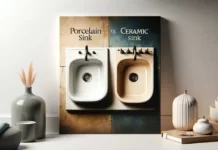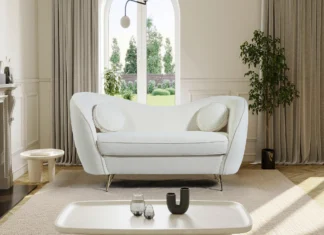There are different countertop surfaces like granite, marble, and quartzite. From the previous few year’s granites got fame and people felt this material is reliable.
Quartz and marble both are beautiful, luxurious materials for countertops and it is very difficult to choose among them. Which one is better, the choice can be really difficult.
Similarly considering natural stone for the countertops in your home, you might take samples of granite and quartzite and think which one is better and how they are different?
Natural stone varieties like granite and quartzite, share the same qualities and it is true, however, when you search these stones, you will find some of the main differences.
On the other side, marble surface is not used in commercial areas, and then quartz countertop is a different material which is the best alternate solution of marble and granite.
In this guide, we are going to compare these three countertop materials briefly.
What are Marble, Quartz, and Granite?
Marble
It is a natural stone that has been used for many years as a building material. Artists and Emperors from Julious Caesar to Michelangelo used marble in the great buildings and works of art ever created.
It is a metamorphic rock that can be found all around the world and is versatile in colors.
The finest marble is semi-transparent and you can observe the artistic touch of Earth in each piece. The tops of marble countertops are designed from real stones.
Quartz
It is a manmade countertop made from almost 7% additives and 93% quartz mineral. The additives are many pigments and polymers designed to help the separate pieces of quartz mineral bond together and look a certain way and stay strong.
The powdered form can be shaped into slabs that are used as natural stones.
Granite
It is a coarse or medium-grained igneous rock and famous hard rock, rich in quartz and feldspar, is the common plutonic rock of the Earth’s layer and forms by cooling the magma at depth.
Granite is used as a building stone and paving block, at one time, the quarrying of stone was a great activity of industry. The grains present inside granite can be seen with a naked eye.
What are the physical properties of marble, granite, and quartz?
Marble
- Color- pink, white
- Derived- dolomite, limestone
- Grain-size- medium-grain size and can be seen through the naked eye and has interlocking calcite crystals.
- Hardness- it is hard with soft component minerals.
- Structure- huge
- Group-metamorphic rock
- Consistency-granular, granoblastic
- Ability to accept polish- can be polished to a high luster after being sanded progressively finer abrasives.
Granite
- Color- pink-grey
- Structure- confining and massive
- Consistency- holocrystalline, phaneritic, pan-hypidiomorphicallygrained, and porphyric in places.
- Alterations- unaltered rock.
Quartz
- Composition- silicon dioxide
- Appearance- whitish or clear. Sometimes it resembles snow crystal or glittering sugar
- Hardness- sturdy and durable
Marble vs Granite vs Quartzite
Granite Countertops
If you are looking for a surface that is hard and beautiful as well, you can choose Granite countertops. Granite is a natural product with a timeless appeal and aura. The countertop of granite takes a premium-quality kitchen to the next level visually and is often the focal point of the room.
After the selection of this surface, you will never regret it because ofthe different styles and colors available in this natural stone.
People love to have this surface on the floor of their homes due to its durability and toughness.
Styles and colors availability make this natural stone more demanding.
No matters where this surface is used downside or upside just keep in mind sealing is an important thing to keep this surface safe.It is not a big deal to seal once in a year.
Pros
- Heat resistant
- Pressure resistant
- Stain and scratch-resistant
- Natural stones beautify the look and style of the home
- Versatile in colors
- Used perfectly with your flooring, kitchen cabinets, and walls
Cons
- Porous
- Not properly sealed and the sealing process once per year is a little inconvenient
- The poorly sealed countertop can enhance the growth of bacteria in its pores
- Pricy
You may also like to check: 10 Most Popular Granite Colors
Marble Countertops
Marble is a building material that is normally used in homes and non-commercial areas.
You can find this countertop surface generally in bathrooms, bathroom shelves, and walls of different rooms.
Some people rely just on marble-like they compared quartz vs quartzite vs granite vs marble and feel marble is a convenient option to use.
Marble is versatile as different patterns and prints are available on the marble tiles and help to improve the look and feel of the elegant marble countertops.
If you want to compare granite vs. marble keeps one thing in your mind marble is more porous.So you need to maintain the surface shape with great care like re-sealing multiple times in one year.
Marble is a terrific option for elegant countertops. There is no reason to deny the beauty of this stone can add to your space.
Pros
- This stone can add elegant beauty to your surface
- Variety of styles and colors available
- Premium quality material that screams luxury
- It is drop-dead beautiful
Cons
- Porous and prone to staining
- In the kitchen, marble is soft and can get scratches by pots, knives, and pans
- Resealing a few times in one year is a bit difficult thing to protect from scratching and staining
- More expensive as compared to quartz
Quartz Countertops
It is also a popular choice for a countertop. These are man-made countertops and are known as ‘engineered stones’ and the quartz countertop is made from quartzite that is grounded and mixed with resin and pigments and then shaped into slabs that can be used as a natural stone.
The quartz is human-made so they are more consistent. It is versatile and maximum of which resembles natural stone slabs. White quartz countertops are very much similar to marble.
Quartz is strong and can resist cracks. They are not heat resistant and can be burned with a hot pan. It is not porous rock so doesn’t need to be sealed and doesn’t stain.
Pros
- Engineered quartz can be shaped into specific shapes like counters equipped with sinks joined into the slab.
- Texture and coloring is more uniform
- Versatile in styles and colors
- Stronger and less brittle as compared to natural stone
- Harder
- Less prone to scratches and stains
- Good for resale value
- Non-porous
- Maintenance is easy
- More resistant to heat
- No sealing is required
- During installation, easier to match the seam
Cons
- Visible seams
- Manmade tops, so don’t have manmade cachet
- Not resistant to heat like marble.
- Will get yellow if exposed to direct sunlight
- Not suitable for outdoor use
- Difficult and heavier to install
Conclusion
I hope this discussion of marble vs granite vs quartz is quite helpful for you with your bathroom and kitchen countertop decisions. It is significant to carefully select the bathroom and kitchen countertops to stay beautiful for years to come. You can’t really go wrong with the options however, your kitchen counter is the center of attraction of your kitchen. Over time they also get a lot of use. It is up to you to select the options accordingly.
FAQs
Which is better quartzite or granite?
Quartz is a more durable material in terms of scratch, heat, and stain making this the best for use in a kitchen.
Is quartzite more expensive as compared to marble?
Quartzite is more pricy as compared to granite and marble. It is hard and dense and is attributed to the availability of material present in nature.
Is quartzite worth the money?
It is a luxurious stone and has more price as compared to granite and is worth its weight in gold.













